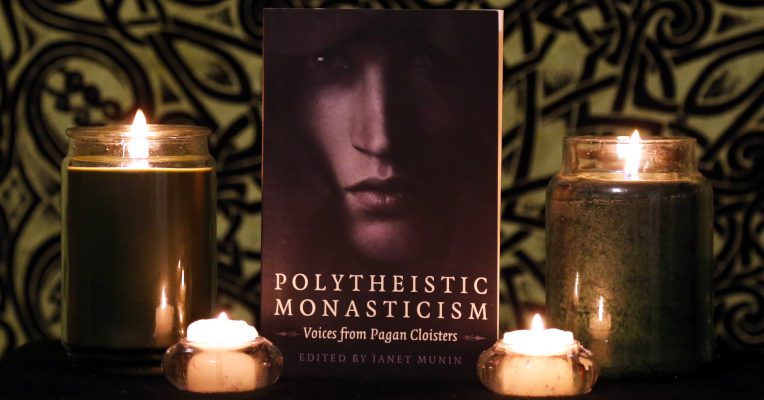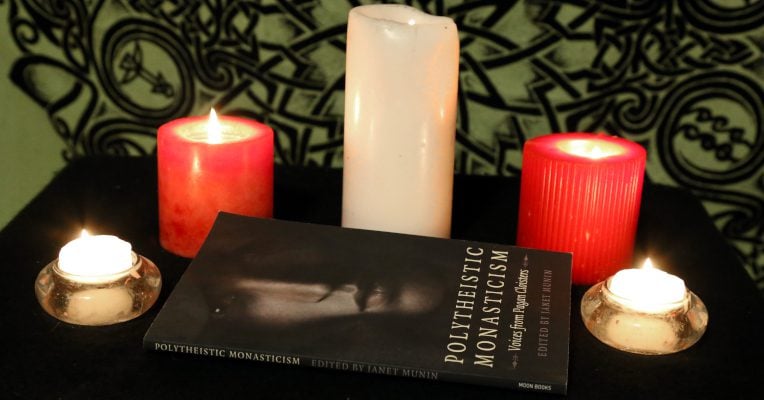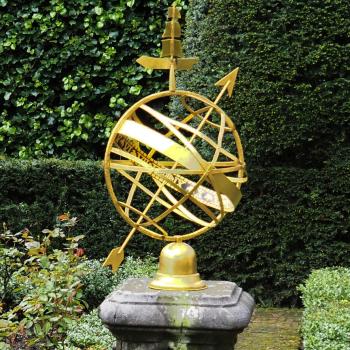Polytheistic Monasticism: Voices from Pagan Cloisters
edited by Janet Munin
Moon Books – April 2022
120 pages
Trade Paperback: $12.95, Kindle: $6.49
I’ve always been fascinated with monks and monasteries – and with nuns and convents. Part of that was growing up in a low-church Protestant environment where such things simply didn’t exist. Monasticism was exotic and different… in a “grass is always greener” sense.
But another part was a serious respect for people who were so devoted to their God and to their religious tradition that they walked away from the ordinary world and devoted their lives to worship, devotion, and contemplation. When I learned that monasticism wasn’t limited to Christianity, my interest grew even deeper.
I’m a Pagan – I believe the world is sacred, not fallen. I believe the pleasures of this life are good and holy, not a distraction and certainly not sinful. But there’s still a place for people who feel called to withdraw from the mainstream world – in part if not in whole – to live a life of simplicity and devotion.
And that brings us to the latest in Moon Books series of very short introductory books on topics of interest to Pagans and polytheists: Polytheistic Monasticism: Voices from Pagan Cloisters. Nine essays by seven different polytheists who practice monasticism in one form or another. It’s a quick read: I finished in one sitting. While some of the contributors are accomplished academics, there’s very little jargon – it’s easy to read.
It starts with editor Janet Munin’s introduction to religious roles, and especially the role of the monastic. She points out the difficulty most would-be monastics have: “Western polytheistic monastics do not have the support of an institution providing for their material needs, nor do they live within a culture that encourages the practice of giving alms to mendicants.” We can’t simply retire to a monastery and devote our lives to devotion, because there are no monasteries for us to retire to. Most of the contributors to the book work a “regular” job of one description or another.
Syren Nagakyrie approaches monasticism as a form of resistance. They ask “what do we lose, what potential does not get realized, while all of us are working ourselves to exhaustion in service to capital?” They go on to say “I’m most interested in creating a life in which wage labor is minimally necessary, if at all. The past two years have certainly shown me that I can make do with far less than I thought I needed.”
That’s a life not unlike what medieval Christian monks lived. They spent most of their non-devotional time working in subsistence agriculture, brewing and wine-making, and other activities designed to insure the monks were fed and clothed and had a few goods to trade for what they couldn’t make themselves.
Not perfection, but constancy of effort
For me, the most useful essay is Kimberly Kirner’s “Called by the Spirits, but not to the Priesthood.” Kim is a fellow OBOD Druid – we’ve been friends since we met at the House of Danu Gorsedd in 2009. On one hand, I’m not entirely an objective reviewer. On the other hand, this essay puts into writing some of the things Kim has told me over the years. She gives a brief overview of monasticism, then says “the critical pieces … are devotion, discipline, and contemplation.”
Further, “devotion is not about perfect action, but rather constancy of effort.”
This is the key for those of us who are called to monastic practice but who struggle with the realities of living in the modern Western world. What we do will be imperfect. But if we do it faithfully and consistently, we will see the benefits, even though they come slowly.
Kim also says “in my experience, there is no greater gift we can give to any spirit-being than the offering of our silence and time.” My own practice needs more silent contemplation. I do a good job of listening for the Gods I serve – listening for Their instructions and assignments. The time I spend just listening is too brief.
Crowding out the harmful with the helpful
Another challenge I have is expressed in Rebecca Korvo’s “On the Custody of the Eyes.” Christians use this concept to preach against lust, but that’s not an issue for sex-positive Pagans. Rebecca says we need to use it first to see what’s really there, especially the processes of life that go on even in the most concrete-filled city.
But also, we need to use the custody of the eyes to reduce the amount of time we spend on the internet in general and on social media in particular. Social media is designed to be addictive, and it is. Rebecca says “we need to prioritize our devotional relationships above the trivial and the transitory. If we are to serve the Gods, then we need to make mind and soul still and clear, to receive Their messages and to reflect Their light without distortion.”
Rebecca says “the seeking out and the turning away” work together, and she’s right. But throughout my life, I’ve been unable to create empty space for something better to fill. I’ve only been successful when I took on so many positive activities that they crowded out the harmful activities.
I’ve been working on the idea of Pagan monasticism for some time, especially with the practices of regular prayer, meditation, and offerings. It’s made a significant difference in my life.
But I need to take it farther.
The essays in Polytheistic Monasticism show that no one person or tradition has it all figured out yet. But because these writers have shared their experiences and their practices, the rest of us have a place to start, and a map for taking our own practices further.
Who should read this book?
Polytheistic Monasticism is accessible for the beginner and it’s relevant for the advanced practitioner. There are many ways to be a polytheistic monastic – this book presents some of them. If you’re a polytheist and you’re interested in taking your devotional practice deeper, it will be helpful.
For those who care about such things, I bought my copy of Polytheistic Monasticism. I’m friends with some of the contributors, but as always, if I couldn’t honestly recommend the book, I’d conveniently forget to review it. This is a useful book, and I encourage you to read it.

















